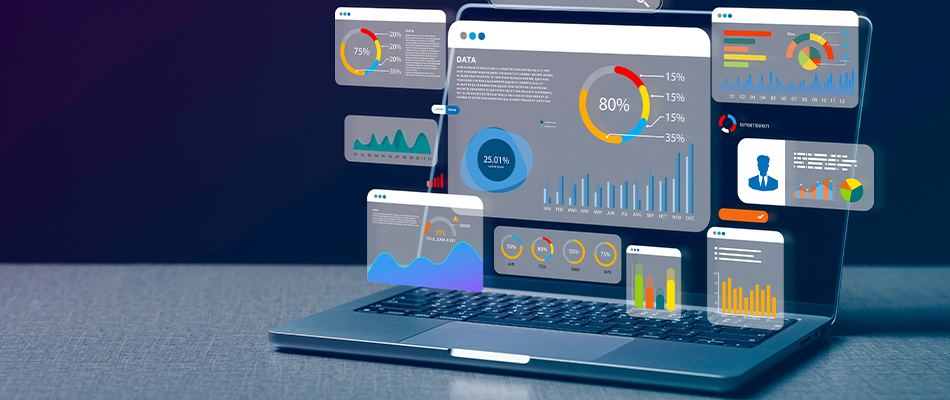Computer Science has become one of the most powerful fields shaping our world today. From powering artificial intelligence and cloud platforms to driving digital banking and smart cities, its applications are everywhere. A Bachelor of Science in Computer Science provides the academic and technical foundation to understand, build, and innovate with technology. With coding skills, data handling, AI, and cybersecurity now essential across industries, this qualification offers both versatility and job-readiness. This shift is creating new demand for software engineers, cyber security experts, and data scientists.
In this article, we will explore the top skills from BSc Computer Science, including advanced and soft skills that help students become future-ready professionals.
Table of Contents
- Why Study Computer Science in South Africa?
- Foundational Skills You Will Build
- Applied Technical Skills You Learn
- Advanced and Emerging Skills
- Soft Skills and Professional Development
- Career Opportunities After BSc Computer Science
- Why Choose Regenesys for Your BSc Computer Science?
- Conclusion
- Skills from BSc Computer Science – FAQ

Why Study Computer Science in South Africa?
South Africa is undergoing rapid digital transformation, positioning itself as a growing hub for technology and innovation. Pursuing a Bachelor of Computer Science in this environment offers students unique access to a dynamic and evolving tech landscape.
The skills from BSc Computer Science are not only in demand locally but also highly transferable internationally. South Africa’s supportive ecosystem, which includes innovation grants, national digital strategies, and industry collaboration, helps graduates thrive in a competitive, tech-driven job market.
Listed below are some reasons that make South Africa one of the top choices to pursue a Computer Science programme:
1. Growing Tech Ecosystem
South Africa is undergoing a technology-driven transformation, with increasing investment in digital infrastructure and innovation.
2. Strategic Public and Private Support
National and provincial initiatives support ICT development through innovation grants, digital skills training, and entrepreneurship programmes.
3. Diverse Career Opportunities
Graduates are in demand across industries – from finance and healthcare to logistics and government – as companies prioritise digital capability.
4. Thriving Startup and Enterprise Landscape
Whether you aim to join a tech startup or a multinational firm, the country’s tech sector offers opportunities for growth and impact.
5. Internationally Transferable Skills
The skills from a BSc in Computer Science – coding, data analysis, cybersecurity, software development – are highly adaptable and globally relevant.
6. Supportive Infrastructure for Graduates
Innovation hubs, incubators, and networking events contribute to a strong pipeline from education to employment.
7. Relevance in the Digital Economy
As more services and operations shift online, qualified Computer Science graduates are central to South Africa’s digital future.
Read more on Is Computer Science in Demand in South Africa? here!

Foundational Skills You Will Build
A strong Computer Science foundation is built from core subjects that teach students to think logically, solve problems, and understand how technology functions from the ground up. Early modules focus on the basics of computation, programming, and hardware.
These early modules lay the groundwork for advanced study and practical application. Below are some of the key foundational skills from BSc Computer Science that students typically develop early in the programme:
1. Programming Languages
Learn Python, Java, and C++
Develop the ability to write, debug, and test code efficiently
2. Logical Thinking
Strengthen analytical and structured thinking
Solve programming challenges using systematic approaches
3. Mathematics for Computing
Study Calculus, Discrete Mathematics, and Statistics
Apply mathematical principles to design and analyse algorithms
4. Computer Architecture
Understand how CPUs, memory, and hardware components work together
Explore system performance, data flow, and machine-level operations
5. Operating Systems Fundamentals
Learn how operating systems manage hardware and software resources
Study processes, memory management, and system-level interactions
These skills from BSc Computer Science not only support future coursework but also build a versatile technical base for professional roles in tech.
Read more on What is Computer Science? Understand Key Concepts and Career Paths
Applied Technical Skills You Learn
As students progress through the programme, they begin to acquire specialised and practical knowledge. These applied technical skills from BSc Computer Science are the tools used in real-world environments, from corporate IT departments to tech startups.
The following areas represent high-demand tech skills that students master during the course of their studies:
1. Software Development
Learn the complete software development life cycle
Experience agile methodologies and use of tools like Git for version control
2. Data Structures and Algorithms
Understand how to manage data efficiently and optimise performance
Applications in search engines, database queries, and application backends
3. Database Management
Work with SQL and NoSQL databases
Build, query, and maintain relational database systems
4. Cybersecurity Basics
Gain awareness of cyber threats, malware, and security protocols
Introduction to ethical hacking and network security
These coding skills from BSc Computer Science and practical competencies form the technical core of what you learn in BSc CS.
Read more on Difference Between Computer Science & Information Technology
Advanced and Emerging Skills
Students pursuing a Bachelor of Science in Computer Science are progressively introduced to advanced technologies and research-driven learning. At this stage, the focus shifts to future-ready innovations where data, automation, and cloud computing intersect. These advanced skills from BSc Computer Science prepare learners to contribute meaningfully to next-generation technology environments:
These skills from BSc Computer Science that students develop position them to explore work opportunities in future-facing projects:
1. Artificial Intelligence & Machine Learning
Understand neural networks, supervised and unsupervised learning
Work with machine learning algorithms and automation tools
2. Research and Innovation
Undertake academic or practical research projects
Explore emerging challenges and contribute to new ideas in computing
These competencies are in demand globally and open doors to postgraduate study or employment in high-impact tech domains.
Read more on Why is pursuing a BSc in Computer Science crucial for shaping one’s career? here!
Soft Skills and Professional Development
While technical knowledge is vital, success in Computer Science also depends on interpersonal and professional capabilities. Modern IT roles require collaboration, adaptability, and ethical responsibility.
Students enrolled in the programme also build the following soft skills from BSc Computer Science:
1. Teamwork and Collaboration
Develop the ability to work effectively in groups through assignments, labs, and collaborative projects.
2. Critical Thinking
Learn to approach real-world challenges with logical reasoning and creative problem-solving.
3. Communication
Gain skills in presenting technical concepts clearly and producing professional documentation.
4. Ethical Awareness
Understand the legal, social, and ethical responsibilities of working with digital technologies.
These are crucial components of the overall skills from BSc Computer Science that make graduates more employable and effective.
Read more on Computer Science Careers and Opportunities here!
Career Opportunities After BSc Computer Science
Graduates of a Bachelor of Computer Science enter a job market full of possibilities. With digital skills in high demand, roles span industries from finance and education to government and manufacturing.
Listed below are some roles that graduates can explore after building expertise in skills from BSc Computer Science:
1. Artificial Intelligence and Machine Learning Engineer
Design intelligent systems that can learn from data, automate tasks, and support decision-making. These roles are increasingly vital in sectors like finance, healthcare, and e-commerce.
2. Cloud Computing Engineer
Build and maintain scalable cloud infrastructure for businesses, using platforms such as AWS, Azure, or Google Cloud. This role supports remote services, data storage, and digital transformation.
3. Full-Stack Developer
Develop both the frontend and backend of websites and applications, ensuring functionality, responsiveness, and seamless user experience. This role demands strong coding skills and problem-solving ability.
4. Network Architect
Design and implement secure and efficient computer networks for organisations. They play a critical role in ensuring reliable connectivity and data flow.
5. Software Developer
Create, test, and improve software applications for desktop, mobile, or web use. These professionals are key to building the tools and systems used in everyday business operations.
6. Software Engineer
Apply engineering principles to design complex software systems, often focusing on performance, scalability, and integration. They work across industries to build robust digital solutions.
Why Choose Regenesys for Your BSc Computer Science?
Regenesys School of Technology offers a fully accredited and industry-aligned BSc in Computer Science programme that equips students with both theoretical depth and real-world skills. The focus on applied learning means that students graduate with a portfolio of projects, practical knowledge, and professional confidence.
The 3-year programme is delivered entirely online and includes core and elective modules that students complete for a total of 365 credit points. At Regenesys, this is a NQF Level 7 qualification and requires candidates to have passed their matric exams before applying for enrollment.
Regenesys has always been at the forefront of making higher education accessible and affordable. Keeping this in mind, the Computer Science programme is competitively priced. Additionally, we offer several options for financing, including student loans and flexible payment plans.
Highlights of the Regenesys Bachelor of Science in Computer Science include:
- Comprehensive Curriculum
- Practical Learning
- Industry Connections
- Flexible Study Options
- Experienced Faculty
- One-on-one interactions
- Access to Resources
- Personalised Approach to Learning
Read more on High School Subjects Required for Computer Science here!

Conclusion
The skills from BSc Computer Science extend far beyond writing code. They include a blend of theoretical knowledge, applied technical expertise, and professional soft skills that are crucial in the digital economy.
From building intelligent systems and securing cloud environments to analysing big data and driving software development, the opportunities for Computer Science professionals are both diverse and impactful. A Bachelor of Science in Computer Science equips students to meet these challenges confidently and creatively.
Visit the Regenesys School of Technology to learn more about our BSc in Computer Science and take the first step toward your future in Computer Science.
Skills from BSc Computer Science – FAQ
What are the most important skills from BSc Computer Science?
You will gain coding skills, data handling, problem-solving, software development knowledge, and cloud computing expertise.
Is Computer Science a good degree in South Africa?
Yes. With a growing demand for digital professionals, the skills from BSc Computer Science position graduates to explore roles across sectors.
What careers can I pursue after a Bachelor of Computer Science?
Graduates often become software engineers, data analysts, cyber security experts, or software developers.
How long is a Computer Science programme?
At Regenesys School of Technology, the Computer Science programme is 3 years in duration.
Do I need to be good at maths to study Computer Science?
Mathematics is an important part of the programme, and the curriculum includes Calculus, Statistics, and Discrete Mathematics.







